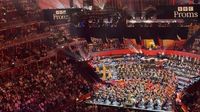The Royal Albert Hall was transformed into a musical cosmos on August 9, 2025, as the National Youth Orchestra (NYO) delivered an electrifying performance at the BBC Proms. Under the baton of conductor Dalia Stasevska, the ensemble’s annual appearance took on a celestial theme with the aptly titled 'Beyond' program, blending the cinematic spectacle of John Williams’ Star Wars scores, the contemporary mystique of Caroline Shaw’s The Observatory, and the timeless grandeur of Gustav Holst’s The Planets. The result was a night that soared from the familiar to the unexpected, captivating an audience eager for adventure both musical and intergalactic.
From the very first note, the energy in the hall was palpable. According to BroadwayWorld, the concert kicked off with one of the most instantly recognizable pieces in film history: the Star Wars 'Main Title'. The audience’s enthusiastic response set the tone for the evening, and the NYO, fueled by youthful exuberance, wasted no time in making the music their own. As The Arts Desk described, “the Force was definitely with them.” Stasevska’s approach was to aim for "sweep and drama over nostalgia," and the brisk tempi, gleaming brass, and dynamic strings made it clear this was no mere trip down memory lane. Instead, the orchestra found fresh excitement in John Williams’ legendary score, with highlights including 'Across the Stars'—the sweeping love theme from Attack of the Clones—and the mystical 'The Jedi Steps and Finale' from The Force Awakens.
The Star Wars suite didn’t just revisit the saga’s classic themes; it also ventured into newer territory with selections from the sequel trilogy. 'Psalm of the Sith' from The Rise of Skywalker injected a dose of musical tension and darkness, while 'Scherzo for X-Wings' and the aforementioned 'The Jedi Steps and Finale' brought action and resolution. The programming, as BroadwayWorld pointed out, was a clever nod to the Royal Albert Hall’s upcoming Film in Concert screenings and served as a reminder of the enduring influence of Williams’ film music.
Before the interval, the mood shifted with Caroline Shaw’s The Observatory, a work composed in 2019 and inspired by the iconic Griffith Observatory in Los Angeles. The piece, described by The Arts Desk as possessing "luminous textures and off-kilter rhythms," challenged the orchestra to listen and respond in new ways. Stasevska drew out the music’s conversational qualities, layering shimmering woodwinds over muted brass and fading strings. The result was a sense of suspended time and space—an abstract journey that invited the audience to imagine the L.A. skyline, the observatory’s telescope, and the vastness of the cosmos. "It’s not a work that shouts for attention," the review noted, "but here it drew the audience in with its sense of quiet wonder."
After the break, the NYO tackled Holst’s The Planets, a suite written between 1914 and 1917 that remains a pillar of the orchestral repertoire. Each movement is named for a planet and its corresponding astrological character—except, notably, for Earth and Pluto, the latter not yet discovered when Holst composed the work. The performance was a journey through both the stars and human imagination, with every section of the orchestra committing fully to the music’s demands. As The Arts Desk observed, "‘Mars’ was fierce and tightly drilled... ‘Venus’ provided a welcome balm... ‘Mercury’ darted about with quicksilver agility."
The big set pieces truly shone. 'Jupiter' was buoyant and rhythmically sharp, its famous hymn tune kept lively and unsentimental. 'Saturn' grew inexorably in power, the lower brass and percussion lending gravity and inevitability, while 'Uranus' burst with humor and bold orchestral colors. The final movement, 'Neptune, the Mystic', was a standout moment. As BroadwayWorld described, the Farnham Youth Choir "magically appeared up in the gallery," their ethereal voices floating from offstage and gradually fading into silence. This eerie, mysterious conclusion left the audience in hushed awe, a testament to the wonder and enigma of deep space. The choir’s gradual exit, their sound diminishing to nothing, allowed the orchestra and Stasevska to bask momentarily in the profound silence that followed—a rare and moving moment in any concert hall.
But the surprises weren’t over yet. In an unusual and joyous encore, the choir and orchestra set aside their instruments for an a cappella rendition of 'Feeling Good', the classic song made famous by Nina Simone. The performance, as The Arts Desk reported, "rightly brought the house down." The delighted expressions on the faces of the young musicians and the rapturous response from the audience underscored the sense of shared achievement and celebration. It was, as BroadwayWorld put it, "an astronomical achievement during an astronomical evening."
Throughout the night, what stood out was the NYO’s collective commitment and the rapport between Stasevska and her players. The ensemble’s energy was infectious, but never at the expense of precision or musicality. The program’s structure—moving from the cinematic sweep of Star Wars through the introspective modernity of Shaw to the epic scope of Holst—offered a journey "beyond the familiar, beyond expectations and straight into the heart of what makes live orchestral music so exhilarating," as The Arts Desk summed up.
The concert is available to stream on BBC Sounds, allowing those who missed the live performance to experience its highlights. The BBC Proms continue at the Royal Albert Hall until September 13, 2025, with a complete list of concerts available for those eager to catch more of this summer’s musical wonders.
For the NYO, the Proms remain a showcase for not just technical excellence but also imagination, courage, and joy in music-making. This year’s 'Beyond' program was a reminder of why the orchestra is such a cherished part of the Proms season—and why, for one night at least, the Royal Albert Hall felt like the center of the universe.




